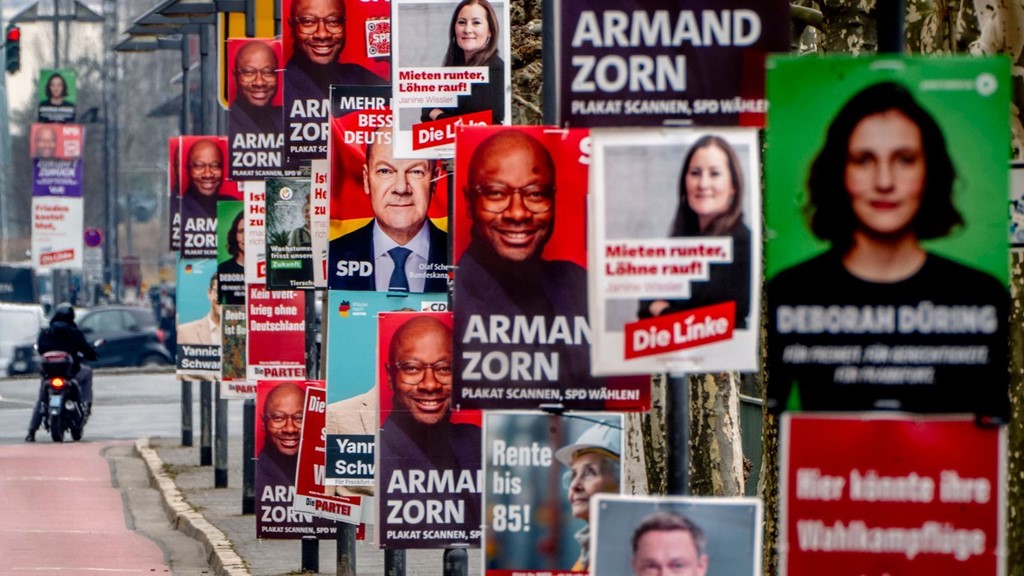
German Elections Shake Up Politics as Conservatives and Far-Right Surge
The political landscape in Germany is undergoing a major shift as exit polls indicate a record-breaking performance for both the conservative CDU/CSU bloc and the far-right Alternative for Germany (AfD). Former U.S. President Donald Trump wasted no time in celebrating the results, calling it a "great day for Germany."
According to projections, the centre-right CDU/CSU is leading the race with around 28.6% of the vote, positioning its leader, Friedrich Merz, as the likely next chancellor. The far-right AfD, meanwhile, is set to secure an unprecedented 20.4%, making it the second-largest party in Germany for the first time in history. Current Chancellor Olaf Scholz and his Social Democratic Party (SPD) are trailing at 16.3%, marking their worst post-war electoral result.
Despite its strong performance, the AfD remains politically isolated due to the long-standing "firewall" policy, which prevents mainstream parties from forming coalitions with the far-right. CDU leader Merz reaffirmed that he will not cooperate with the AfD, despite their calls for collaboration. In response, AfD's Alice Weidel warned that a government without them "will not last" and predicted that her party would soon overtake the conservatives entirely.
Also Read:- Former Arsenal Striker Lucas Perez Joins PSV in Surprise Move
- Warriors vs. Mavericks – The Podziemski vs. Kyrie Showdown
The election results come amid growing voter discontent with Germany’s economic challenges, high immigration levels, and energy policies. Analysts suggest that AfD's rise reflects a broader European trend of increasing far-right support, fueled by frustrations over inflation and governance.
One of the most striking elements of the election night was Merz’s strong stance on Germany’s role in Europe. In a televised debate, he emphasized that Europe must strengthen itself in light of unpredictable U.S. leadership under Trump. Merz criticized recent U.S. foreign policy moves and suggested that both Washington and Moscow were making decisions "over the heads" of European nations.
Meanwhile, Scholz has conceded defeat, describing the outcome as "bitter" but vowing that his party will not cooperate with the far-right. The leader of the Free Democratic Party (FDP), Christian Lindner, also faces uncertainty, as his party hovers just below the 5% threshold required to enter parliament.
While the CDU/CSU appears to be the clear winner, the challenge now lies in forming a coalition. Given Germany’s proportional representation system, no single party can govern alone. Coalition talks could take weeks or even months, delaying the official transition of power. Merz has expressed a desire to move quickly, aiming to have a government in place by Easter.
This election signals a major turning point for Germany, with a clear shift towards the right. Whether this translates into lasting political change will depend on coalition negotiations and how mainstream parties respond to the AfD's growing influence. One thing is certain—Germany’s political future is at a crossroads, and the decisions made in the coming weeks will shape not only the country but also the future of Europe.
Read More:



0 Comments